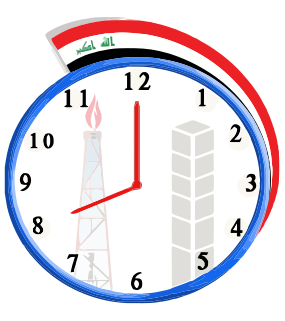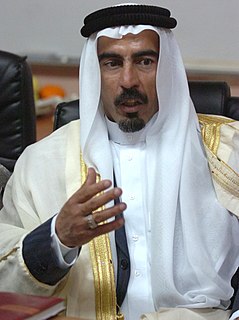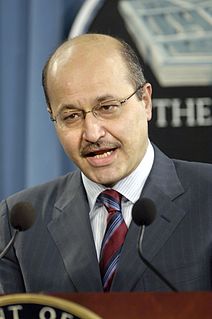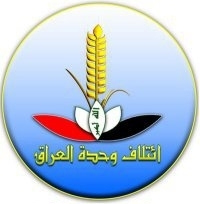
The National Iraqi Alliance, also known as the Watani List, is an Iraqi electoral coalition that contested the Iraqi legislative election, 2010. The Alliance is mainly composed of Shi'a Islamist parties. The alliance was created by the Supreme Council for Islamic Revolution in Iraq to contest in the January 2005 and December 2005 under the name United Iraqi Alliance, when it included all Iraq's major Shi'a parties. The United Iraqi Alliance won both those of elections however later fell apart after several major parties left the alliance due to disputes with Prime Minister Nouri al-Maliki and the Supreme Council.

Following the ratification of the Constitution of Iraq on 15 October 2005, a general election was held on 15 December to elect a permanent 275-member Iraqi Council of Representatives.

The Mujahideen Shura Council (MSC),, was an umbrella organization of at least six Sunni Islamic insurgent groups taking part in the Iraqi insurgency against U.S. and coalition and Iraqi forces: Tanzim Qaidat al-Jihad fi Bilad al-Rafidayn, Jaish al-Ta'ifa al-Mansurah, Katbiyan Ansar Al-Tawhid wal Sunnah, Saray al-Jihad Group, al-Ghuraba Brigades, and al-Ahwal Brigades.

Abdul Sattar Abu Risha – Sheikh Abdul Sattar Eftikhan al-Rishawi الشيخ عبد الستار افتيخان الريشاوي – was a high-profile Iraqi tribal sheikh of the Abu-Risha tribe. He was the leader of an alliance of Iraqi Sunni Arab tribes that opposed al-Qaeda in Iraq.
Anbar Salvation Council is a collection of tribal militias in the Al Anbar province of Iraq, formed by former Ba'athists and nationalists to fight al-Qaeda in Iraq and other associated terrorist groups. In Arabic the council is known as Sahawa Al Anbar, abbreviated SAA when referred to by the US Army. The council has become a model for awakening movements across Iraq, though the Iraqi Defense Ministry has said that it plans to disband the Awakening groups due to concerns about their origins and future intent.
The Sons of Iraq were coalitions between tribal Sheikhs in the Al Anbar province in Iraq as well as former Saddam Hussein's Iraqi military officers that united to maintain stability in their communities. They were initially sponsored by the US military.

Sheik Ahmed Bezaa Abu Risha is a Sunni leader in the Al-Anbar province, and led the movement of Sunni tribesmen known as the Anbar Salvation Council.

Governorate or provincial elections were held in Iraq on 31 January 2009, to replace the local councils in fourteen of the eighteen governorates of Iraq that were elected in the 2005 Iraqi governorate elections. 14,431 candidates, including 3,912 women, contested 440 seats. The candidates came from over 400 parties, 75% of which were newly formed.

A parliamentary election was held in Iraq on 7 March 2010. The election decided the 325 members of the Council of Representatives of Iraq who would elect the Iraqi prime minister and president. The election resulted in a partial victory for the Iraqi National Movement, led by former Interim Prime Minister Ayad Allawi, which won a total of 91 seats, making it the largest alliance in the Council. The State of Law Coalition, led by incumbent Prime Minister Nouri Al-Maliki, was the second largest grouping with 89 seats.
The Al Anbar Governorate election of 2009 was held on 31 January 2009 alongside elections for all other governorates outside Iraqi Kurdistan and Kirkuk.

The Diyala governorate election of 2009 was held on 31 January 2009 alongside elections for all other governorates outside Iraqi Kurdistan and Kirkuk.
The Iraq Awakening and Independents National Alliance is an Iraqi political coalition formed to contest the Al Anbar governorate election, 2009. It obtained 8 out of 29 seats - the highest of any party list.
The Tribes of Iraq Coalition also known as the Anbar Salvation Council is an Iraqi political coalition formed to contest the Al Anbar governorate election, 2009 which won 2 out of 29 seats. The party was one of several formed out of the Awakening movements - Sunni tribal militias armed and financed by the United States Army to fight al-Qaeda in Iraq. The coalition was led by Sheikh Hamid al-Hais. In an interview with the Washington Post prior to the election, Hais said he would kill all the Iraqi Islamic Party's candidates if anything happened to any of his candidates.

The Unity Alliance of Iraq commonly known as Iraq's Unity, Iraqi Unity or Wassat is an Iraqi political coalition formed to contest the Iraqi parliamentary election, 2010. The coalition was formed by Sheikh Ahmed Abu Risha, the head of the Awakening movement, a Sunni tribal militia which was successful in significantly reducing the insurgency in al-Anbar Governorate and was then reformed into a political party, the Iraq Awakening and Independents National Alliance, which won the most seats in the Al Anbar governorate election, 2009. The Awakening Alliance joined forces with Iraq's Shi'a interior minister Jawad al-Bolani and his secular Iraqi Constitutional Party and Ahmed Abdul Ghafour al-Samarrai, chief of Sunni Endowment Office. The list is led by Jawad al-Bolani.

The 2012–13 Iraqi protests started on 21 December 2012 following a raid on the home of Sunni Finance Minister Rafi al-Issawi and the arrest of 10 of his bodyguards. Beginning in Fallujah, the protests afterwards spread throughout Sunni Arab parts of Iraq. The protests centered on the issue of the alleged sectarianism of Prime Minister Nouri al-Maliki. Pro-Maliki protests also took place throughout central and southern Iraq, where there is a Shia Arab majority. In April 2013, sectarian violence escalated after the 2013 Hawija clashes. The aggressive protests continued throughout 2013, and in December Maliki used security forces to forcefully close down the main protest camp, in Ramadi. Sunni groups, such as the Army of the Men of the Naqshbandi Order, took up arms in response, and joined forces with the General Military Council for Iraqi Revolutionaries (GMCIR), a militant group made up of former Ba'athists, to conduct a military campaign against the Iraqi government. The Islamic State of Iraq and the Levant (ISIL) would later grow out of this civil conflict.
The Al Anbar governorate election of 2013 was held on 20 June 2013 alongside elections for Ninevah.

The 2013 Nineveh Governorate election in Iraq was held on 20 June with elections for the Al Anbar Governorate. Due to security problems, turnout was less than half that of the 2009 election. This election saw Sunni Arab parties lose a number of seats to minority parties.

The Uniters for Reform Coalition is a Sunni political coalition in Iraq.

















